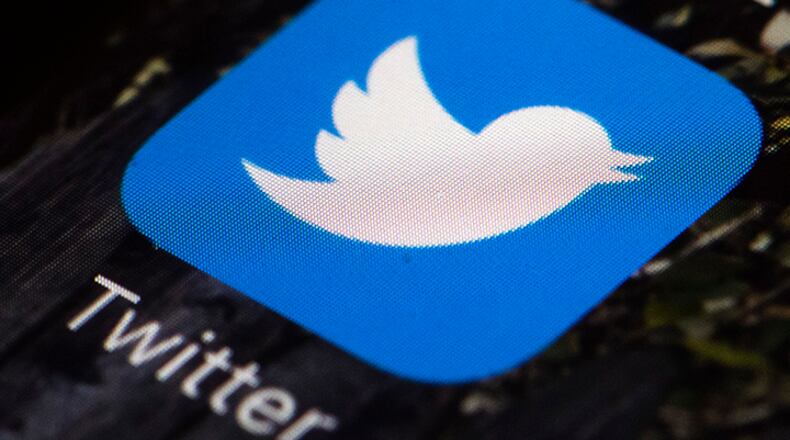Twitter this week removed thousands of accounts for promoting content related to the far-right QAnon conspiracy theory which is based on the absurd notion that a secret “deep state” campaign is trying to undermine President Donald Trump’s reelection, among many other unproven claims.
The social media giant announced Tuesday that it had already permanently removed more than 7,000 accounts in the last few weeks for the violations. At least another 150,000 accounts are expected to be suspended or have reduced visibility under the platform’s crackdown on misinformation ahead of the November election.
»MORE: Social media giants struggle to contain viral ‘Plandemic’ conspiracy theory
The conspiracy began appearing more than two years ago on anonymous online message boards and has since crept into mainstream politics, with prominent names such as actress Roseanne Barr and former baseball player Curt Schilling promoting the claims.
Trump, whose claim “the system is rigged” is one of his most frequent tropes since the start of his campaign, is known for recently retweeting the QAnon accounts, and proponents of the theory flock to his rallies wearing clothes and hats with QAnon symbols and slogans.
Since 2017, believers in the fringe theory have posted a litany of social media content that supposedly is generated by a high-ranking government official known only as “Q.”
»MORE: Facebook losing millions of dollars as companies cut off advertising
The theory also continues to push the unproven theory of more than one shooter in JFK’s assassination, and alleges that a child sex-trafficking ring run by satanic pedophiles and cannibals is a part of a wider conspiracy.
“Conspiracy theorists always managed to spread their theories in the past, but the internet has made this much easier,” said Kathryn Olmsted, a history professor who studies conspiracy theories at University of California, Davis. “If you believe in one, you believe in another. You start collecting them.”
»MORE: Tucker Carlson on racist posts by former staffer: ‘We are all human’
The FBI designated QAnon as a potential domestic extremist group last year, according to CBS News.
Model Chrissy Teigen has said that she has been harassed recently by QAnon followers, saying she blocked more than 1 million people who have been tweeting coordinated attacks and making death threats, according to CBS News.
Earlier this month, a Republican congressional candidate from Colorado won her district’s primary, becoming one of an estimated 23 current or former congressional candidates who support the QAnon theory, NPR reported, citing Media Matter for America, a left-leaning media watchdog.
“We’ve been clear that we will take strong enforcement action on behavior that has the potential to lead to offline harm,” the company said in a tweet late Tuesday. “We will permanently suspend accounts Tweeting about these topics that we know are engaged in violations of our multi-account policy, coordinating abuse around individual victims, or are attempting to evade a previous suspension ― something we’ve seen more of in recent weeks.”
»MORE: White supremacists use social media to organize racist attacks amid unrest
Under Twitter’s new policy, accounts with content associated with QAnon will be banned from the platform’s trends section. Further, tweets associated with QAnon will no longer be highlighted and recommended, and URLs associated with the theory will be blocked from being shared on the platform, if not eliminated altogether.
Twitter’s move follows in the footsteps of Facebook, which in May also removed several groups, accounts and pages against QAnon.
Some experts predict QAnon followers would simply flock to other platforms to keep the conspiracy alive, according to NPR.
“They have large presences on Facebook groups and on YouTube. They also have their own sites and message boards, and they’re very good at adapting when social platforms change,” said Alice Marwick, a professor at the University of North Carolina at Chapel Hill who studies misinformation, according to NPR.
― Information provided by The Associated Press was used to supplement this report.
About the Author
Keep Reading
The Latest
Featured


